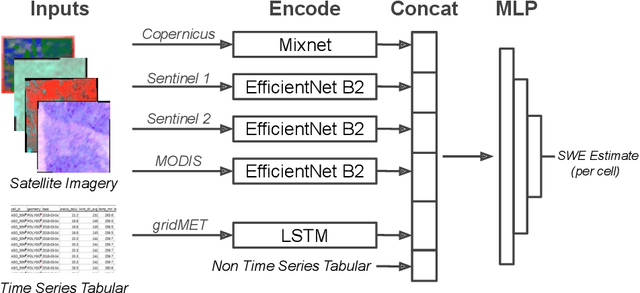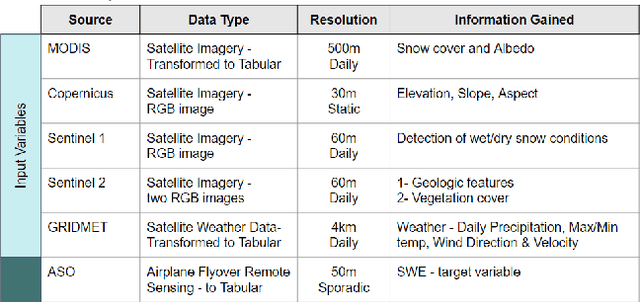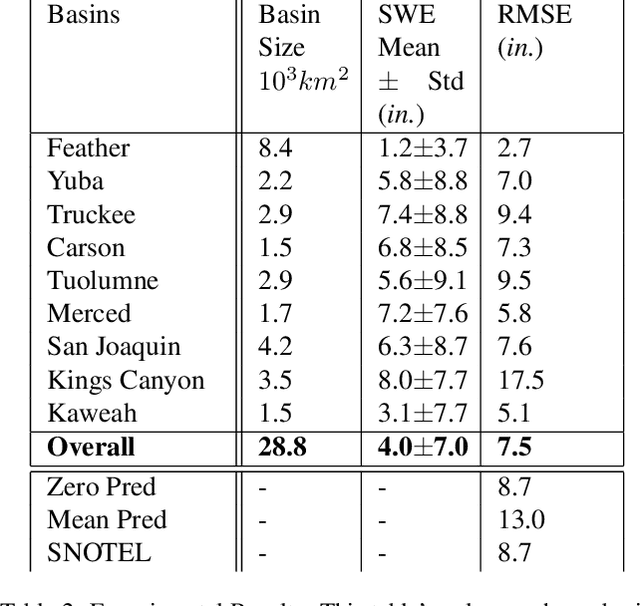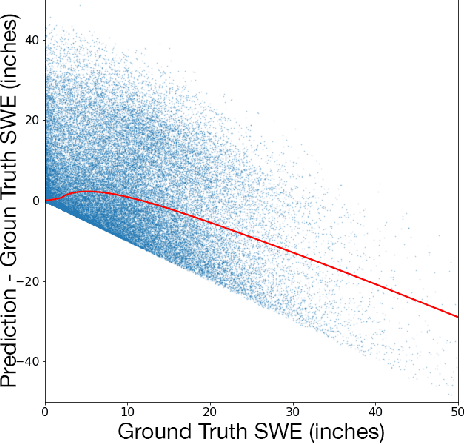Snowpack Estimation in Key Mountainous Water Basins from Openly-Available, Multimodal Data Sources
Paper and Code
Aug 08, 2022



Accurately estimating the snowpack in key mountainous basins is critical for water resource managers to make decisions that impact local and global economies, wildlife, and public policy. Currently, this estimation requires multiple LiDAR-equipped plane flights or in situ measurements, both of which are expensive, sparse, and biased towards accessible regions. In this paper, we demonstrate that fusing spatial and temporal information from multiple, openly-available satellite and weather data sources enables estimation of snowpack in key mountainous regions. Our multisource model outperforms single-source estimation by 5.0 inches RMSE, as well as outperforms sparse in situ measurements by 1.2 inches RMSE.
* Accepted Oral Presentation at CVPR 2022 MultiEarth
 Add to Chrome
Add to Chrome Add to Firefox
Add to Firefox Add to Edge
Add to Edge